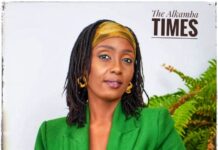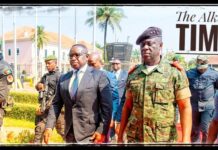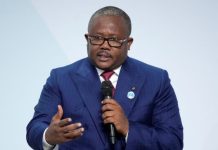By Alieu Famara Sagnia
According to the Gambian historian Hassoum Ceesay, the late British monarch Queen Elizabeth II “had some special attachment to The Gambia.”
He gave an interview monitored on GRTS tv for the daily flagship 8 pm news on Thursday, 7 September, just hours after it was announced that the Queen had died.
Hassoun reminded the audience that during her tour of former British colonies in early 1961, Queen Elizabeth II spent three days (3 to 5 December) in The Gambia.
During that visit, she went to Njawara, Brikama, for a chief’s conference (Mansa Bengho) and toured the hospital in Banjul, which was subsequently rechristened Royal Victoria Hospital (RVH) in honor of her grandmother Queen Victoria.
Much earlier in 1925, her father, the Prince of Wales, King George V (KG5 stadium in Half-die Banjul comes to mind) visited, and then the Queen’s husband, the Duke of Edinburgh, Prince Philip, also visited in 1957 for three days.
According to Hassoun, the British monarch was at the center of the decolonization process for the country, and the sovereign signed the proclamation for the Gambia to become independent in 1965.
Asked about the impact of British colonization on the country, Hassoun pointed out that “to colonize us, they had to destroy our monarchies – the Sonkos in Niumi, Baldehs in Fulladou, and so on.”
In February 1952, when the Queen’s father suddenly died, there was mourning in the Gambia, then a British colony, as there was a solid attachment to the United Kingdom.
Queen Elizabeth II “had very close ties” with Gambia’s political leaders. For example, in 2017, she received President Adama Barrow during the Commonwealth Summit held in London, the first with a Gambian leader in close to 30 years.
Meanwhile, Gambia’s first President, Sir Dawda Jawara, had met with the Queen over a dozen times.
And it was the Queen who knighted several Gambians, beginning with Sir John Mahoney, speaker of the Legislative Council in 1954, Sir Dawda in 1966, Sir Farimang Singhateh two years later, and Sir Alieu Sulayman Jack another two years later, according to the Gambian historian.
Thus, Queen Elizabeth II had very close ties with Gambia’s political leaders, dating well before independence and up to the meeting with President Barrow in 2017.
One must not also lose sight of the Queen as the head of the Anglican Church, a Christian denomination with solid historical roots in The Gambia and the other former British colonies in West Africa.
According to the BBC World Service News, the Queen’s successor, HM King Charles III, will receive the envoys of Commonwealth member states at Buckingham Palace in London today.






